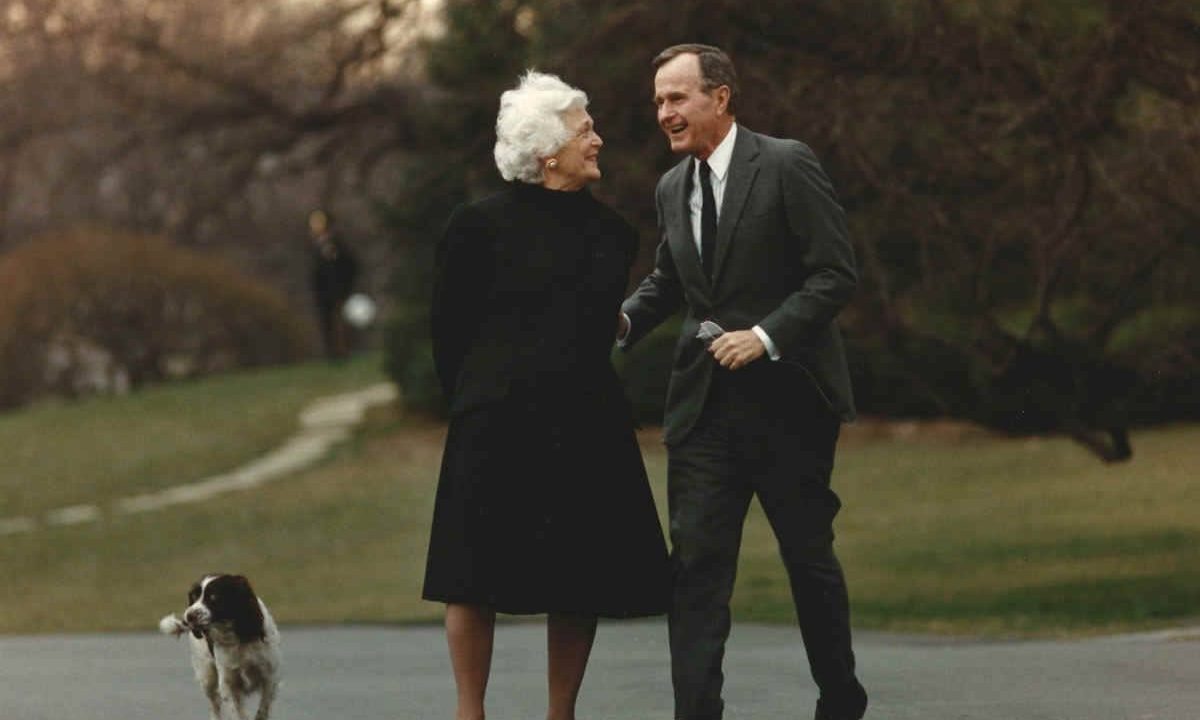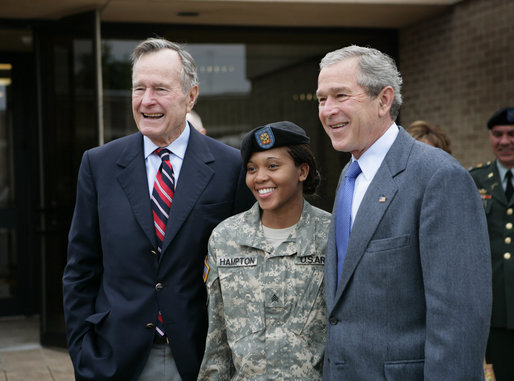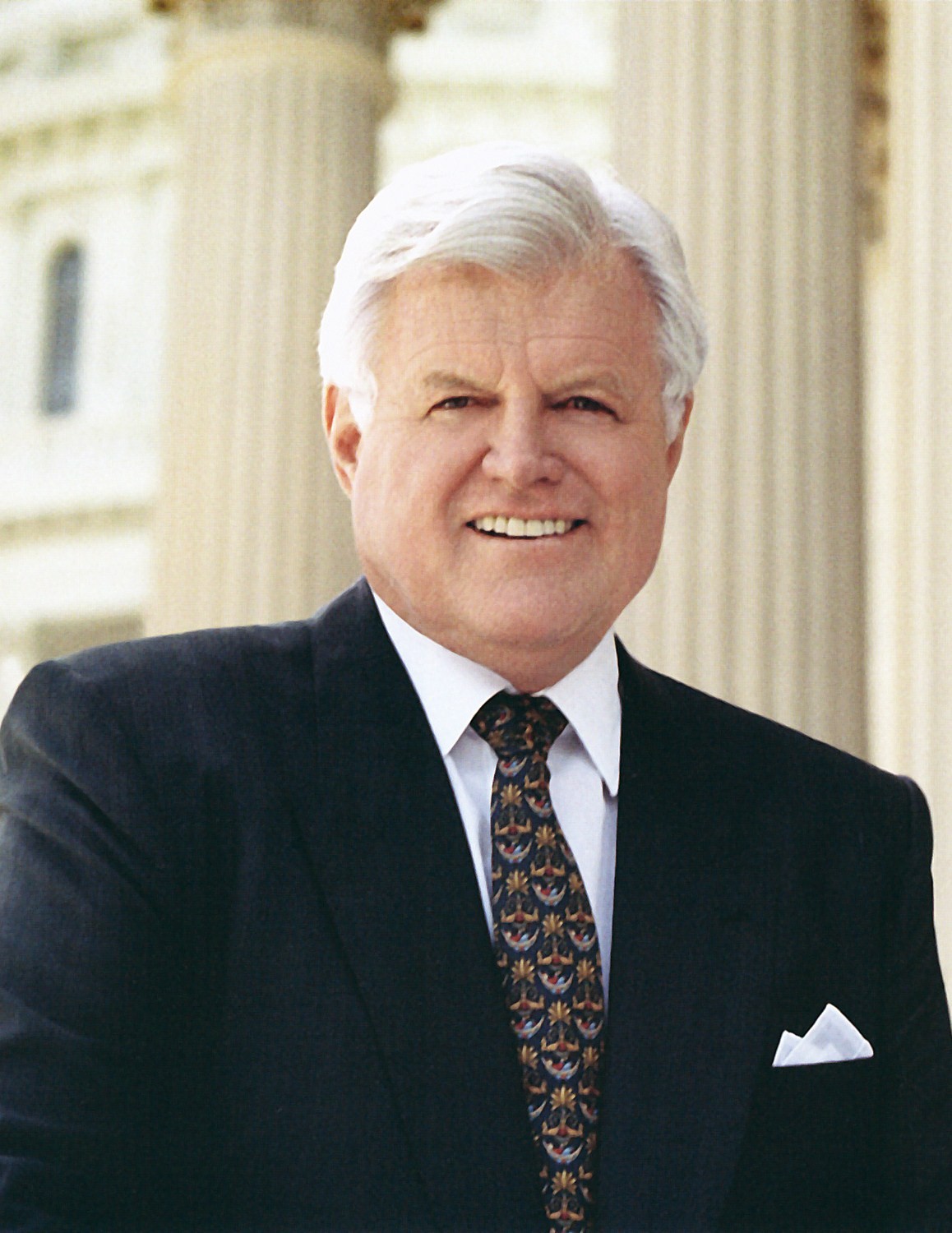Books for the Holidays and New Year
Holiday downtime and New Year’s resolutions open the door to reading new titles. Barbara Perry offers book suggestions on influential U.S. political figures on both sides of the aisle, highlighting George H.W. and Barbara Bush. Ms. Perry is the Gerald L. Baliles Professor and Director of Presidential Studies at the Miller Center at the University of Virginia. Follow her on Twitter @BarbaraPerryUVA.
Be on the lookout for more holiday reading suggestions at Thoughts From the Lawn. We welcome comments!
With the recent passing of George and Barbara Bush, we have focused at the Miller Center on the life and career of our 41st president, whose oral history we conducted. As the retrospectives on our last World War II president took center stage for the country’s farewell to George H. W. Bush, I reflected on the books about him and his wife of 73 years.

Journalist Jon Meacham’s Destiny and Power: The American Odyssey of George Herbert Walker Bush is currently the definitive work on the president who gave the author unprecedented access to the president’s recorded diaries. A Pulitzer Prize winner for his biography of Andrew Jackson, Meacham has become America’s “eulogist laureate,” delivering moving and eloquent tributes to George and Barbara Bush at their respective funerals. His gift for compelling narrative, leavened with sparkling wit, marks both his commentaries and lengthy tomes.
For a work that combines biography and political analysis of the GOP in this uncertain time for the party, readers will find Mark Updegrove’s The Last Republicans: Inside the Extraordinary Relationship Between George H.W. Bush and George W. Bush to be absorbing as well as convincing. Updegrove, president and CEO of the LBJ Foundation, paints a less than grand portrait of where the Grand Old Party has headed under the leadership of the incumbent president. When published in 2017, the book made headlines for revealing that Bush 41 had voted for Hillary Clinton in the previous year’s presidential contest, and his son had voted for neither Trump nor the former secretary of state, perhaps not a shocking revelation in light of Trump’s attacks on Jeb Bush during the race for the Republican nomination.

A loving and highly readable retrospective on the elder Bush is George W.’s book, 41: A Portrait of My Father. Although he digresses to cast his own policies in a positive light, 43’s intimate portrayal of his dad is truly memorable.
If you lean toward a more scholarly reckoning of “Poppy” Bush, you might find 41: Inside the Presidency of George H. W. Bush more to your taste. Based on the Miller Center’s findings in his oral history, the book includes essays by historians and political scientists that cover Bush Sr.’s skillful leadership of foreign affairs and his less successful record in domestic policies, the appointments of David Souter and Clarence Thomas to the Supreme Court, and how Bush straddled the divide between his more moderate brand of conservatism and Reagan Republicanism.
I am currently reading an advance copy for a review in the Washington Post of The Matriarch: Barbara Bush and the Making of an American Political Dynasty, due out this April and available for preorder. USA Today’s Susan Page, a veteran journalist and observer of the American political scene, has produced a respectful yet accurate biography of the First Lady, based on prodigious research and five interviews with Barbara Bush in the last year of her life.

If your tastes run to Democratic dynasties, you can start the new year with my new study of Edward M. Kennedy, mining the massive oral history project on him and his family produced by the Miller Center from 2004 to 2009. Edward M. Kennedy: An Oral History, scheduled for February release, will present, in his own words and those of his associates, Teddy Kennedy’s liberal counterpoint to the Bushes’ variants of a vanishing strain of Republican conservatism. It also tells the story of how these two families eschewed polarized politics to prioritize the welfare of our nation. To them, compromise was a public good rather than a sign of weakness. Though representing opposite sides of the ideological spectrum, they sometimes found common ground in foreign and domestic polices—a true object lesson for this time year when calls for “good will” resonate.
- Stay on Track: Turning Resolutions into Results
- From “Jimmy Who?” to “What Would Jimmy Do?”
- Washington’s Bold Gamble: Christmas Day 1776
- Increasing Your Impact With Planned Giving
- UVA Club of Boston: UVA Men's Basketball Game Watches
- UVA Club of New Mexico: Cavs Care - Roadrunner Food Bank
